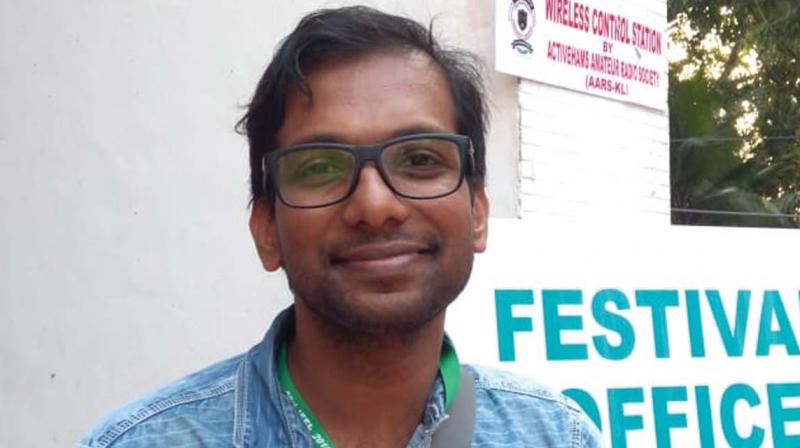Malayali doctor turns Russian interpreter
Dr Kavirajan's ayurveda clinic at Kovalam gets many Russians.

Thiruvananthapuram: Had it not been for an Ulloor resident, a Kyrgyz cinematographer at the 23rd International Film Festival of Kerala would only have had ‘Google Translate’ to speak to people.
Dr Kavirajan B.L., an Ayurveda physician, has never formally learnt Russian and had never played the role of an interpreter before. But upon meeting him, Khamidov Kobilzhon, the Director of Photography of a Kyrgyz film in international competition called Night Accident, was relieved. The festival officials were happy too, as they were struggling, after an interpreter failed to turn up.
Had the doctor not come on December 8, they would have had to use the translation tool to tell Kobilzhon that the main projector had gone under repair. They were arranging another projector, and needed his copy of ‘Night Accident’ in which Kobilzhon was the Director of Photography (DoP). Imagine sharing all this using the translation tool, famous for its hilariously incorrect translations. (The tool did help in a small way, as the staff could convey meal times through this.)
The doctor may have no certificates to prove his proficiency in Russian, but has had four years of practice in the spoken language, thanks to his patients. His Ayurveda centre in Kovalam is frequented by Russians. Even before his Russian business partner gifted him a children’s book of alphabets, Dr Kavirajan B.L. had started his baby steps in Russian. He would use Google Translate. That is how he understood that the tool can give inaccurate and sometimes entirely incorrect translations.
After learning the first words like ‘yabloko’ (apple) and ‘babushka’ (grandmother), he started learning names of body parts and later, internal organs. “The Russians who visit our centre speak a lot about their movies and music. They talk about their culture, politics and art. This helped improve my Russian. I also wanted to learn the language because the patients need words of support. Other than treating their ailments, this counselling was important. That’s why I learnt,” he says.
At IFFK, three or four times he stumbled upon tough words, but Kobilz-hon explained what he said using simpler words. “I am 85-90% correct,” he says. Will he consider taking up interpretation as a profession? “I became an interpreter because there was a need. Kobilzhon and I have a common friend, who had asked for help. Should someone ask for a similar help, I will be happy to do it,” he says.

